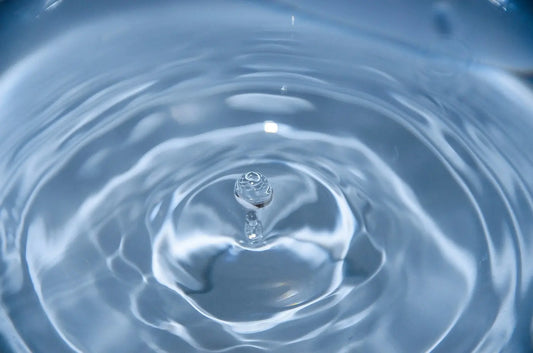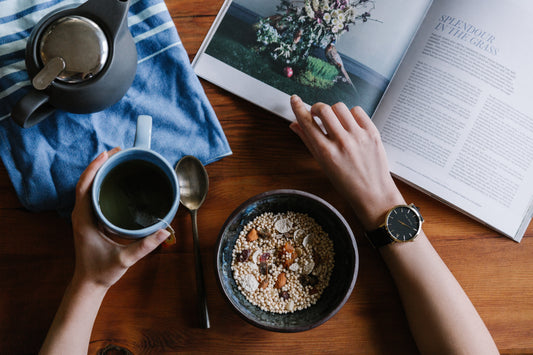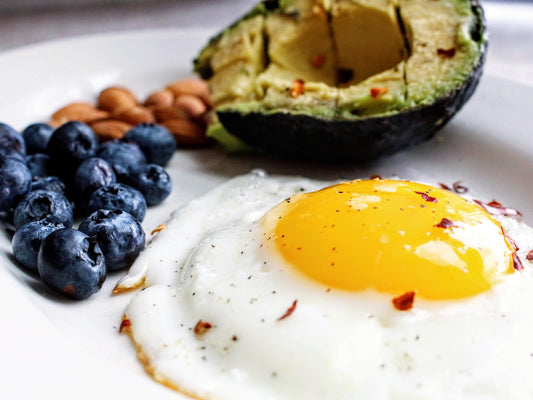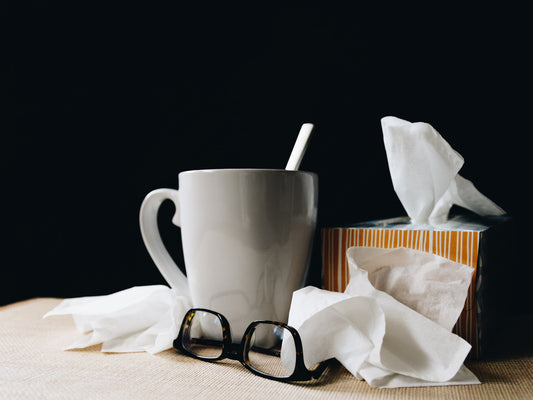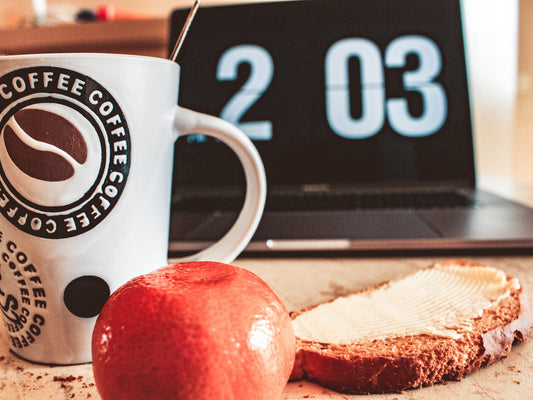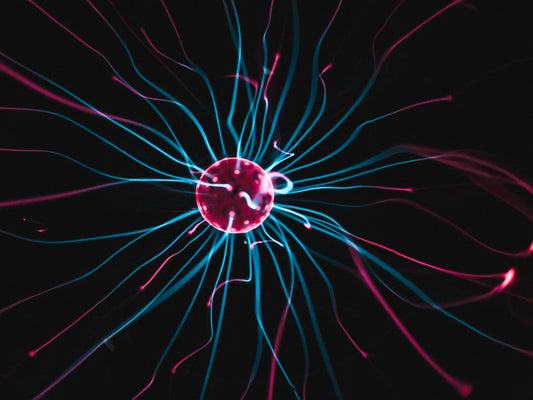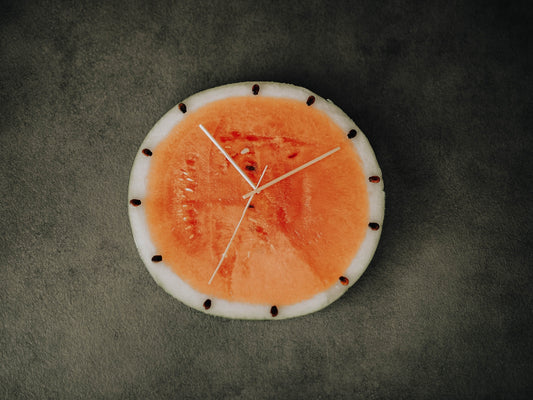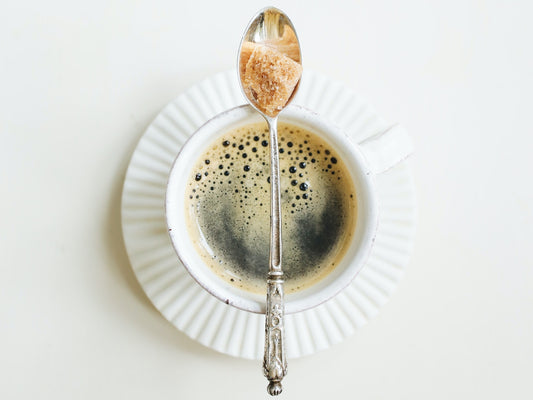Sugar is everyone’s favorite sweetener, but what does it have to do with hydration? The simple answer: sugar makes osmosis possible.
Ok, let’s back up a bit. What is osmosis?
Water moves in and out of our cells by a process called osmosis illustrated below [2]:

Just like gas naturally moves from areas of high pressure to low pressure (think the movement of air as wind, or the deflation of a balloon), water will move to establish equilibrium. In the figure above, an equilibrium is not established when there’s an equal volume of water on either side of the dividing membrane (down the middle of each beaker), but is established when there’s an equal amount of stuff (to be more scientific, solute) per volume of liquid (the solvent) on either side. In other words, water with stuff dissolved in it flows to establish an equal distribution of stuff through the full volume. (This is different from when pure water flows to establish equal water levels in a pipe or a lake, that’s all due to gravity.)
Let’s pause here for a slight clarification in language: in the leftmost beaker, the left side has a low concentration of purple dots dissolved relative to water, but a high concentration, or level, of water relative to the purple dots. This change in perspective can make osmosis confusing, so let’s talk about the whole system with respect to the concentrations of stuff dissolved in a volume of water and not the other way around.
In the left beaker, think of the purple dots as sugar molecules. When there are more sugar molecules on one side of the barrier (the right side), water moves to dilute (make less concentrated) the initially more concentrated sugar molecules. This movement of water from left to right restores equal ratios of water to sugar molecules on both sides of the barrier, thus the whole system is now at equilibrium.
But wait. Why don’t some of the purple sugar molecules on the right just move to the left? In this case, we say that the semipermeable membrane separating the sides of the beaker allows water to pass between sides of the beaker, but is not porous enough to allow the passage of bulky molecules.
Equilibriums across membranes in other cases may be easily achieved with the movement of water. Or, if membranes have large enough holes or pores to transport large molecules, equilibrium may be achieved by keeping water volumes the same on either side of membranes and moving concentrations of molecules instead.
The key takeaway is that water always wants to be at equal concentrations on either side of a semipermeable membrane, and will flow accordingly. Cell membranes are a lot like the “semipermeable” membrane in the beakers: water will flow in and out of cells to equilibrate the concentrations of components inside and outside the cells. Depending on the cell type, equilibrium may also be established with the movement of “stuff” in and out of cells.
Are you concerned about your own hydration levels? Take the quiz below to find the best Hydrant for your hydration routine.
Osmosis in your body 
You can think of the cells in your body as little sacks of water filled with dissolved proteins, sugars, and salts. (Your body is more than a cocktail of chemicals, we know, but bear with us here.) Our cells get these components and other nutrients from the bloodstream, which sources them from the gut [1].
Osmosis happens across the barriers of our guts, blood vessels, and cell membranes. When you consume sugary foods, your bloodstream takes up sugar from the gut, where sugar concentration is relatively high immediately after digestion. After osmosis from the gut into the bloodstream, the proportion of sugar molecules relative to water molecules in the blood increases, causing water to move from cells and into the blood to redress the balance [1].
In reference to the picture above, your cells would be the left side of the leftmost beaker (less sugar and more water) and your blood would be the right side. When water moves out of cells, it results in dehydration at cellular levels.
Dehydration caused by the consumption of sugary foods is a particular worry for diabetics. People with diabetes can experience severe spikes in blood sugar levels because of their inability to produce or respond to insulin. (The hormone insulin is released by our bodies in response to high sugar levels in the blood.) All this sugar in the blood causes water to move out of cells in order to equalize water concentrations, resulting in potentially dangerous dehydration. Similarly high blood sugar levels can be experienced by people with liver, kidney, and pancreatic disease. [3]
Osmosis in our diets
When cells lose water to the bloodstream, their volume decreases and they shrink. We can observe this for ourselves by the weight loss experienced when this water is lost through sweat and urine, or when we get thirsty after eating sugary foods [1]. However, given that dehydration can cause fatigue, dizziness, and headaches, losing water from your cells probably doesn’t make for a good diet plan [4].
A recent BBC article reported that “four to 10-year-olds [in England] are eating more than twice as much sugar as they should per day.” This might be okay if kids were drinking enough water to compensate, but that’s likely not the case. There is clear need to consider how our diets may specifically affect our hydration levels, and our health in general [5].
Osmosis is a two-way street

If the liquid in your gut or bloodstream is more dilute than the liquid in your cells, then water may move into your cells, swelling them. More commonly, however, an equilibrium will be struck when important chemicals move out of your cells, instead of water moving in. These chemicals remain in your bloodstream until they pass through your kidneys, where they may be filtered out of your system and lost through urine. This can lead to the loss of key vitamins and minerals. Drinking only distilled water (just H2O with everything else removed) is potentially harmful for this reason. Distilled water does not contain, and thus cannot replace, the electrolytes lost from the body through sweat and urine. In extreme cases, drinking only distilled water can cause the blood to become dangerously acidic as water (pH 7) dilutes the blood, which is healthiest at a pH of about 7.35 [6].
What’s the conclusion here? Balance is key. Just as your bloodstream and cells seek to balance their water levels against each other, you should balance your intake of food, and the essential chemicals and nutrients contained within. This involves consuming enough liquid to keep your cells happy and hydrated, and enough vitamins, minerals, and electrolytes to replace those lost during your everyday activities.
Need help establishing osmosis equilibrium? Hydrant makes healthy hydration ridiculously easy. It contains exactly the right amount of sugar for taste and function.
Writer: Josie Elliott
Editor: Elizabeth Trelstad, www.hellobeaker.com
References
1. Sciencing. The Effect of Salt & Sugar on Dehydrated Cells. Michael Graw. 25 April 2017. https://sciencing.com/effect-salt-sugar-dehydrated-cells-20371.html - A short article on how dehydration occurs at the cellular level.
2. Wikipedia. Osmosis. https://en.wikipedia.org/wiki/Osmosis - If you’d like to learn more about the process of osmosis, Wikipedia is a great place to start!
3. Livestrong. Does Eating Sugar Dehydrate You? By Lexa W. Lee Oct, 03, 2017 https://www.livestrong.com/article/485820-does-sugar-make-you-dehydrated/ - This article focuses on the causes and effects of high blood sugar levels.
4. Healthline. What Does It Mean When Dehydration Becomes Long-Term and Serious? Kathryn Watson. Reviewed by Stacy Sampson, DO on 20 July 2018. https://www.healthline.com/health/chronic-dehydration#symptoms - This article lists the signs and symptoms of chronic dehydration.
5. BBC news. Children in England consuming ‘twice as much sugar as recommended’. 15 June 2018. https://www.bbc.co.uk/news/health-44483081 - This BBC article reports on how much sugar we are consuming, how much we should be consuming, and where sugar comes from in our diets.
6. Medical News Today, Can you drink distilled water safely? Jenna Fletcher. Reviewed by Natalie Butler, RD, LD on 30 May 2017. https://www.medicalnewstoday.com/articles/317698.php - This article weighs up the pros and cons of drinking distilled water.















